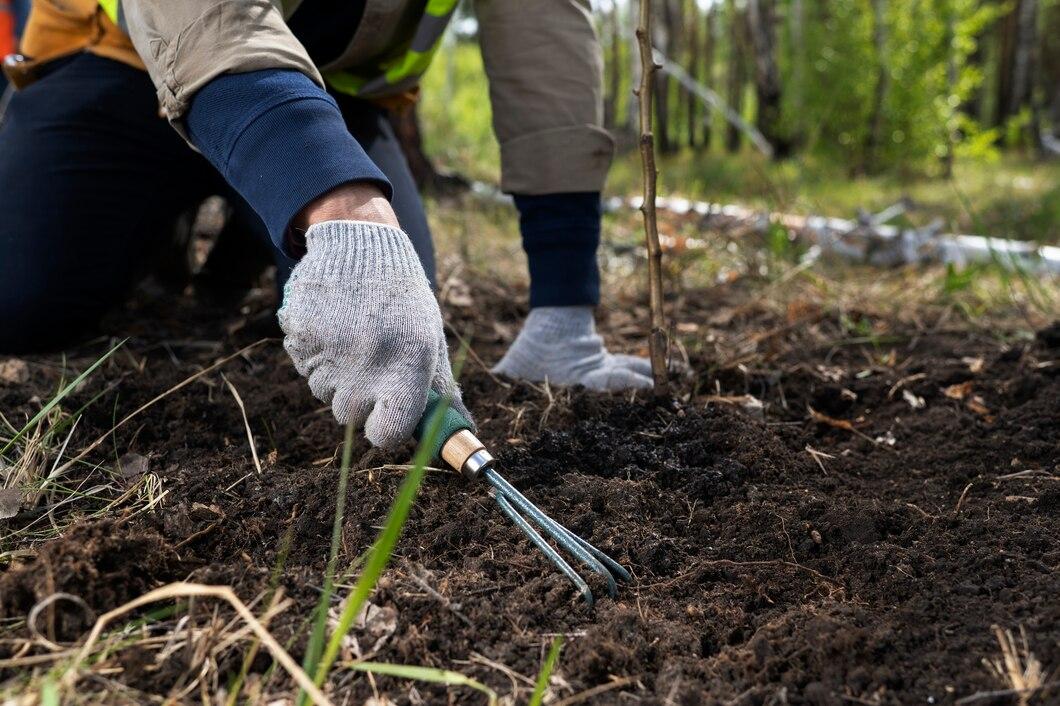Why Is My Mulch Growing Fungi? Solutions for Common Problems

Mulching is a popular gardening practice that helps keep gardens healthy and vibrant. It acts as a protective blanket, covering the soil to retain moisture, suppress weeds, and add organic matter over time. But sometimes, mulch can develop unwanted visitors—fungi. For many gardeners, discovering fungi in their mulch is unexpected and a bit unsettling. You might look out at your garden and wonder why peculiar-looking growths have surfaced in what you once thought was idyllic. But don’t worry; you’re not alone in facing this issue.
Maintaining the health of your mulch is key to a beautiful, thriving garden. Fungi can be a byproduct of mulch under certain conditions, but understanding why it happens and knowing how to address it can enhance your garden’s aesthetic appeal and health. Let’s explore why fungi appear in your mulch and find solutions for tackling this common problem.
Why Is My Mulch Growing Fungi?
Fungi growing in your mulch is actually a more natural occurrence than you might think. Mulch, especially organic types, can provide an excellent environment for fungi due to its warmth and moisture retention. When you include other factors such as humidity and the decomposition process, it creates a prime environment for fungi to thrive. But why exactly does this happen?
– Humidity and Moisture: In humid conditions, mulch tends to retain moisture. This is beneficial for plants, but it also creates a perfect setting for fungi to grow. When mulch stays too wet, it becomes a breeding ground for fungal growth.
– Decomposition: As mulch breaks down over time, it releases nutrients and organic matter. This decomposition is a natural process, but it also results in fungi thriving as they feed on decaying wood and plant material.
– Type of Mulch: Some types of mulch contribute more to fungi growth than others. Wood-based mulches like cedar, pine, and hardwood tend to support more fungal growth due to their organic nature.
Understanding these conditions helps decipher why your mulch might be home to fungi. The presence of fungi isn’t necessarily harmful, but it does need monitoring. Identifying and managing this growth is the next step to ensuring your garden remains a delightful space.
Identifying Common Mulch Fungi
Spotting fungi in your mulch can be unusual, but identifying what you’re dealing with is the first step in managing it. If you know what to look for, you’ll have an easier time addressing the issue. The following are some common types of fungi you might see:
– Mushrooms: These are the most recognizable form of fungi. They vary in shape, size, and color. Mushrooms don’t harm your garden but can be unsightly.
– Mold: This often appears as a white or gray fuzzy coating on the mulch surface. Mold thrives in moisture-rich environments and can spread quickly.
– Slime Mold: Often appearing as bright yellow or orange, slime mold looks alarming but is generally harmless. It usually forms when mulch becomes overly wet.
To help identify these growths, watch for changes in color and texture on the mulch surface. Taking pictures can also be useful when seeking professional guidance.
Preventing and Treating Mulch Fungi
Prevention is often simpler than treatment. Follow these tips to reduce the likelihood of fungi taking hold in your mulch:
– Use Proper Mulching Techniques: Apply mulch in an even layer, about 2 to 3 inches thick. This helps retain moisture without over-saturating the soil.
– Choose the Right Type of Mulch: If you’re prone to fungi issues, consider using mulch types that are less likely to encourage growth, like cedar or cypress.
– Ensure Proper Drainage: Good drainage prevents water from pooling in mulch, reducing the risk of fungal growth. Adjust your soil or garden design if necessary to improve drainage.
If fungi have already made an appearance, it’s often best to seek professional help. Treatment options can include removing affected mulch and applying fungicides designed for garden use. Professionals have the expertise to manage these solutions safely and effectively.
Benefits of Professional Mulching Services
While handling mulch care on your own might seem appealing, professional services bring value and expertise that can save time and ensure garden health. Here’s why:
– Expert Knowledge: Professionals understand the local climate and soil conditions, which helps them choose the best mulch and treatment methods.
– Appropriate Tools and Techniques: Having the right tools means that mulch is applied correctly, enhancing its effectiveness in water retention and weed suppression.
A well-maintained mulch layer can make a big difference in your garden’s vitality. With the right approach, you can enjoy a vibrant landscape free from undue fungal concerns.
If you’re looking to keep your garden healthy and vibrant, consider our professional mulching services. With the knowledge and tools to prevent fungal issues, Kerekes Lawn & Landscape can help maintain the beauty of your garden. Discover more about mulching services and ensure your garden thrives in Toledo, OH.
